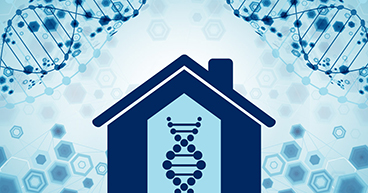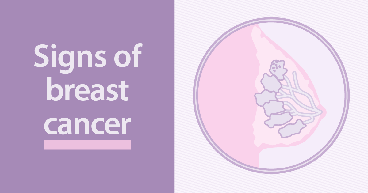


104 Posts

September 21, 2017
What you need to know about gynecologic cancers: They're not as rare as you may thinkIt may be hard to believe today, but in the 1980s, the public knew little about breast cancer, how it forms and how it’s treated. But thanks to annual Breast Cancer Awareness efforts launched every October, when the country is awash in pink ribbons, many women are better informed about how they may reduce their risk for developing the disease, and what they should do to screen for it. But gynecological cancers get little of that public attention

September 7, 2017
What's the difference? Endometrial cancer and uterine sarcomaGynecologic cancers do not get the kind of public attention other cancer types do. September is Gynecologic Cancer Month, but you’re unlikely to see many purple ribbons, fundraisers or walks to raise awareness for the cause. Compared to breast cancer and its pink takeover during its awareness month in October, gynecologic cancers—cervical, ovarian, uterine (endometrial), vaginal and vulvar— are much lesser known.

August 3, 2017
The limitations of at-home genetic testsNew direct-to-consumer (DTC) genetic tests, like the one approved in April by the U.S. Federal Drug Administration (FDA), are seen by some as tools that allow everyday Americans to learn not just about their family lineage but also their risk for diseases ranging from late-onset Alzheimer’s to Parkinson’s, all from the comfort of home. The news may sound like a welcome development to many, but experts warn that these at-home tests should be viewed with caution.

June 13, 2017
What are the signs of breast cancer?Breast cancer is one disease that often causes a variety of more obvious signs and symptoms that may alert you to a potential concern to share with your doctor. Since early detection is key, doctors recommend that women know what these symptoms are, and learn how to spot them.

June 1, 2017
What does a BRCA gene mutation mean for men?With all the awareness around breast cancer these days, lots of attention has been focused on the risks posed by BRCA gene mutations. But many people mistakenly believe that BRCA is only a concern for women, even though men are just as likely as women to have a BRCA mutation.

May 11, 2017
Mother's Day is a good time to talk about family health historyYour family’s health history may say a lot about your own health, and Mother’s Day is as good a time as any to learn more about the ones you love.

April 20, 2017
What you should know about ovarian cancerThere is one cancer that is silently killing women: ovarian cancer. Why? Largely because it has no screening test, and women are largely unaware of its symptoms.

April 18, 2017
The FDA warns of breast implant link to rare cancer: Should I worry?A warning from the federal government linking some breast implants to a rare form of lymphoma has many women concerned about the risks posed by their own implants.

March 23, 2017
How does cancer do that? Stopping cancer from co-opting good cell behavior for its evil motivesWily cancer cells often know what works and what doesn't when it comes to thriving and surviving.
Guidelines
The information contained in this blog is not intended nor implied to be a substitute for professional medical advice. Always seek the advice of your physician or other qualified health provider prior to starting any new treatment or with any questions you may have regarding a medical condition. Nothing contained in the blog is intended to be used for medical diagnosis or treatment of any illness, condition or disease.